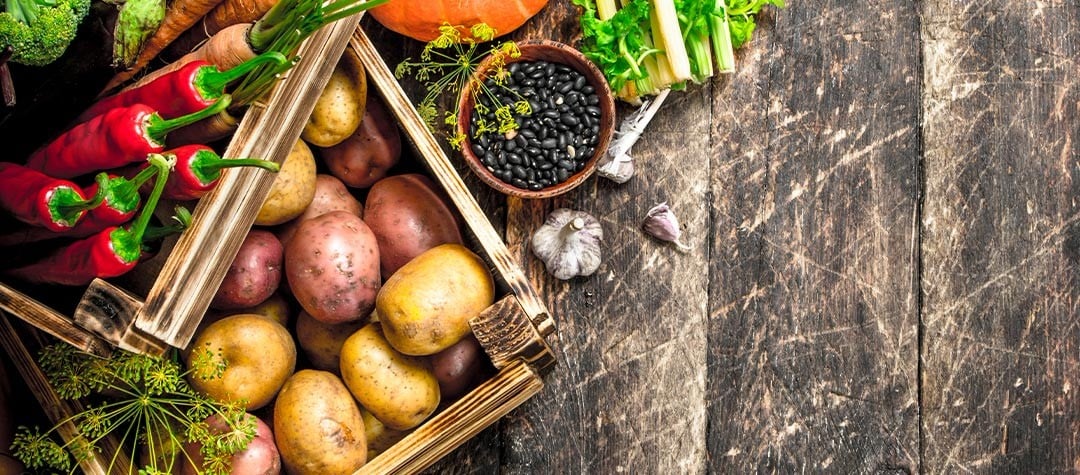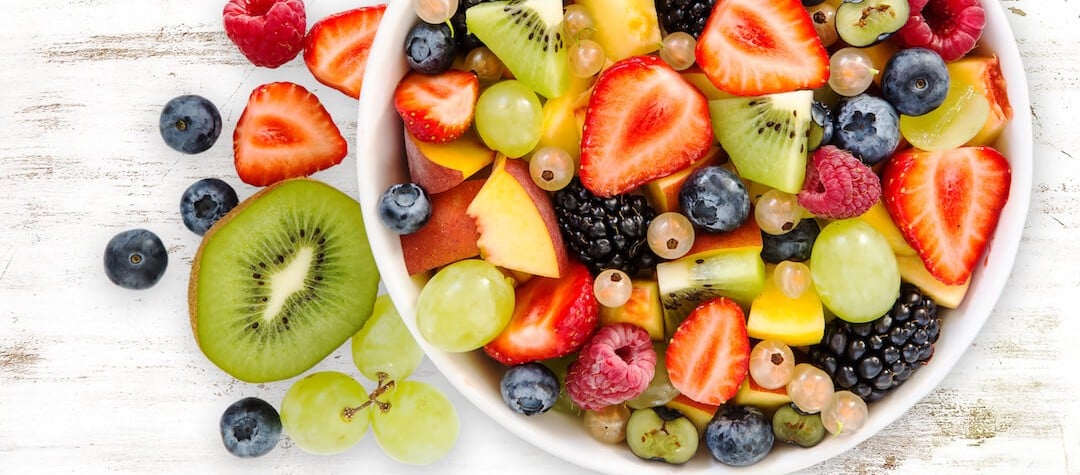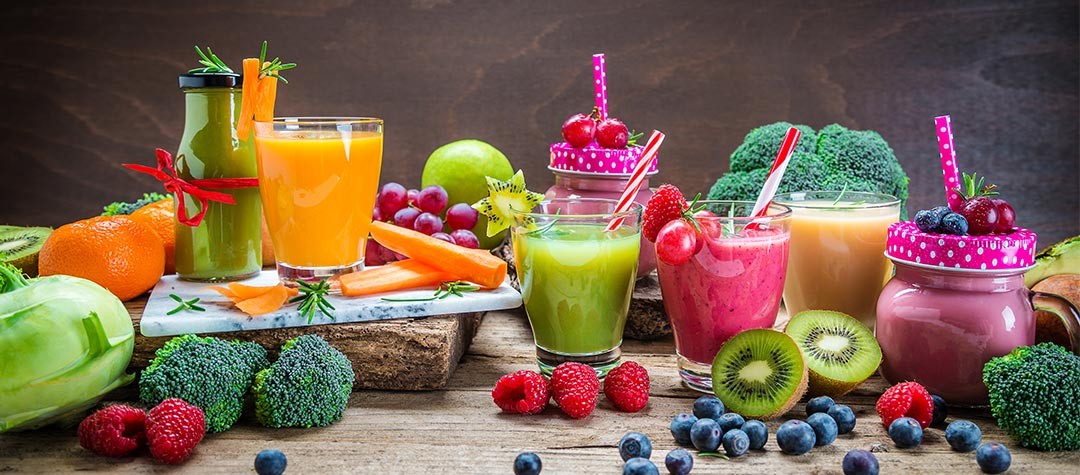With an abundance of fitness gurus, weight dropping programmes and food bootcamps, there’s no wonder there’s confusion about food content. This’ll help clear it up a bit.
1. Healthy means low fat
Many people think that healthy food is low-fat food - and vice versa - but this is actually not a valid equation. Firstly, many low fat foods are not actually all that healthy. Many ready-meals, yogurts and snacks for example, are advertised as low-fat, but that by no means makes them healthy if they are instead full of salt, additives and sugar.
All fats are not the same, and some are actually very healthy.
The second thing to consider is that all fats are not the same, and some are actually very healthy. Monounsaturated fats, found in avocados, olive oil and nuts, can actually help weight loss, as well as keeping your heart healthy and lowering cholesterol. When comparing foods, it is important therefore to consider the type of fat in your foods - and also the food's nutritional value - as well as quantities of fat.
2. Potatoes count as one of your recommended fruit and veg
With some governments advising we increase our daily portions of fruit and veg, many of us are confused about what exactly counts towards this. Many joke about the nutritional value of chips and crisps as they come from potatoes, but the actual fact is that potatoes - in any form - are not the best choice of vegetable.
While potatoes are still a good source of fibre, B vitamins and potassium, they are classified as a starchy food - or carbohydrate - rather than a vegetable. To increase your portions of veg, try replacing your baked potato with a sweet potato now and then, or mash a parsnip, sweet potato or swede in to your usual potato mash.
3. Only fresh fruit counts
Fortunately, it is not all bad on the fruit and veg score, as getting in your recommended portions of fruit is actually a lot easier than many people think. While eating whole fresh fruit is a great way to fill up and get healthy, fruit juice, dried fruit, frozen fruit and tinned fruit also count towards your recommended portions.
Not only that but many fruit-based desserts - such as apple pie, fruit crumble and fruitcake - count too. Although they may not be as great for your waistline or general health, provided they contain a decent amount of fruit they will still count toward your recommended daily intake.
4. Natural means healthy
Just as a low-fat label does not automatically signal a healthy snack, neither does an " organic " or "natural" one. Although organic foods may be healthier than non-organic versions of the same snack, being organic or natural does not exclude foods from being loaded with salt, sugar or saturated fats.
Being organic or natural does not exclude foods from being loaded with salt, sugar or saturated fats.
Also, be wary of labels that state foods "contain" organic or natural ingredients, as very often this does not mean much at all. A fruit-flavored product, for example, may claim it contains real fruit, but this doesn't mean there is any substantial amount in the product - or indicate what the rest of the ingredients are. Although it is good to eat naturally and organically where possible, it is also important to check labels to make sure "natural" products are really as healthy as they seem.
5. Vegetarian diets are protein deficient
A common myth about the vegetarian diet is that it does not contain sufficient protein. One idea that contributes to this perception is that the body needs high levels of protein for health. However, studies have suggested that eating protein at very high levels could actually be bad for us, while Dr Matthew Piper, from the Institute of Healthy Ageing at University College London, has suggested that the vegetarian diet may actually help us live longer for this very reason.
The second misconception here is that meat is the best source of protein . In fact, most foods (including vegetables and grains) contain some level of protein, and there are many great sources of vegetarian protein around, which also have the added benefit of being free of the saturated fats found in most meat.
6. Food intolerances are the same as allergies
Many people use the phrases 'food allergy' and 'food intolerance' as though they were interchangeable, however this is not the case. Although many people believe they have food allergies, it is more likely they are suffering from food intolerance.
Many people believe they have food allergies, it is more likely they are suffering from food intolerance.
The effects of food allergies are also a lot more severe since they involve the immune system, meaning that symptoms can even be life-threatening. In contrast, food intolerances mainly involve the digestive system - with sufferers having trouble digesting food - and symptoms, although uncomfortable and even painful, are never life-threatening.
7. Brown sugar is healthier than white sugar
With many people longing for a way to indulge their sweet tooth and stay healthy at the same time, sugar is a common cause of misconceptions. One theory that many buy into is the idea that brown sugar (in the way of brown bread and rice) is healthier than the white variety, however this is not true.
Although brown sugar contains small traces of minerals (due to the presence of molasses), in reality they are such small traces that they are no real benefit to our health. Also, at the end of the day brown sugar is still sugar , and it brings with it all the same calories and health risks of white sugar, including increased risk of heart disease, tooth decay and obesity.
8. Cereal is the healthiest way to start the day
With many breakfast cereals packaged as health foods - perfect for weight loss and growing kids alike - it is not surprising that many of us view them in this way. However, this image is surprisingly inaccurate, as sugar levels in packaged cereals are often extremely high, even in the most "healthy" sounding brands. A recent study by Which? found that only one of the 100 leading brands of cereals they tested had healthy levels of fat, sugar and salt, while 22 of the cereals aimed at children contained more sugar per serving than a jam doughnut.
While it is true that many of these cereals are fortified with vitamins and minerals, these nutrients are better taken in their natural form if possible, so stocking up on foods naturally abundant in vitamins and minerals and low in sugar - such as oats, sugar free muesli, wholegrain bread or eggs -would be a healthier, more nutritious breakfast choice.
9. Bottled water is better than tap water
We are constantly encouraged to drink more water for our health, and a common misconception is that drinking it by the bottle is a much healthier way of doing this. While there has been no scientific evidence that bottled water is better for us, some studies have actually suggested it is worse.
The Natural Resources Defense Council (NRDC) did a four year review of the bottled water industry and found the water to be no safer or healthier, findings that were also confirmed in a separate study by the University of Geneva. The NRDC further concluded that 25 per cent of the water they tested was in fact just tap water in a bottle. Studies have also suggested that bottled water may be worse for our health as chemicals (phthalates) from the bottles leak into the water over time, which may lead to hormone imbalance when consumed in high levels.
10. Craving is your body's way of saying it needs something
A big misconception about food cravings is that they are our body's way of telling us we are lacking a certain nutrient and need to remedy this immediately via a huge slab of chocolate cake (or your particular food of choice). However, while this theory may help ease our guilt over giving in to cravings, it has yet to be proven true, and more recent research has suggested that food cravings are in fact all in the mind.
A study published in the journal Appetite has suggested that many people crave the foods that they attempt to resist the most, such as junk food. Research has also suggested that people simply crave the foods that they are most exposed to and familiar with, which is demonstrated by the fact that most people crave sugary, salty and fatty foods. Your body and mind will only crave the foods they remember, meaning that eating a healthy, balanced diet - with a little of what you fancy - should help to reduce those junk food cravings.















